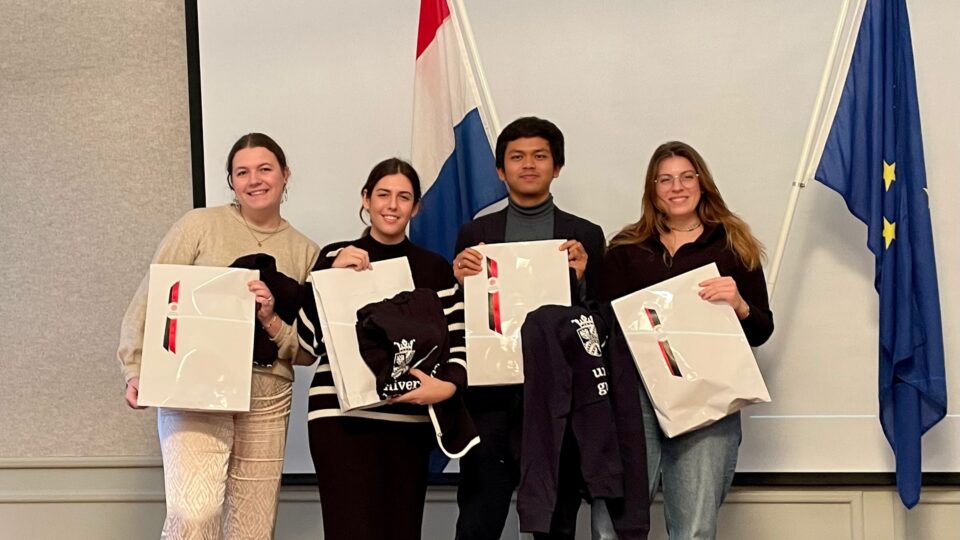“It was a life-changing experience!“
concluded Luthfi, one of the members of the winning team of the GroUp Student Challenge 2023, organised by the Netherlands Innovation Network Sweden. The event marked another successful collaboration between the University of Groningen and Uppsala University. The challenge was themed Trust in Science and provided students with an immersive educational experience that promoted collaboration, innovation and hands-on learning.
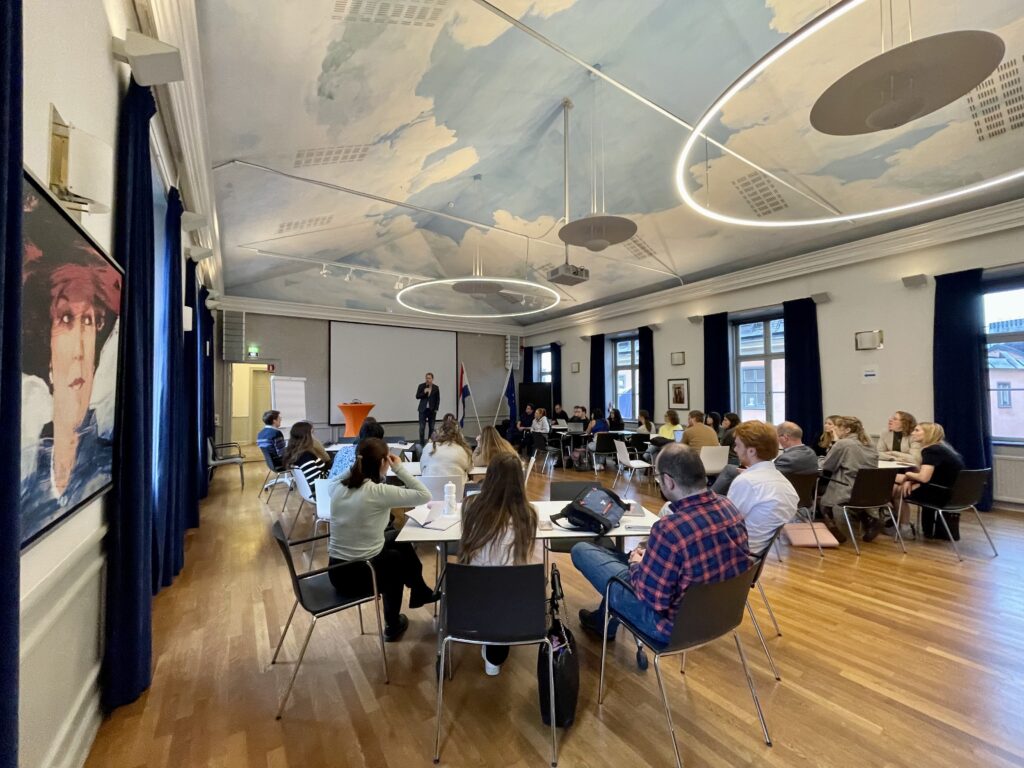
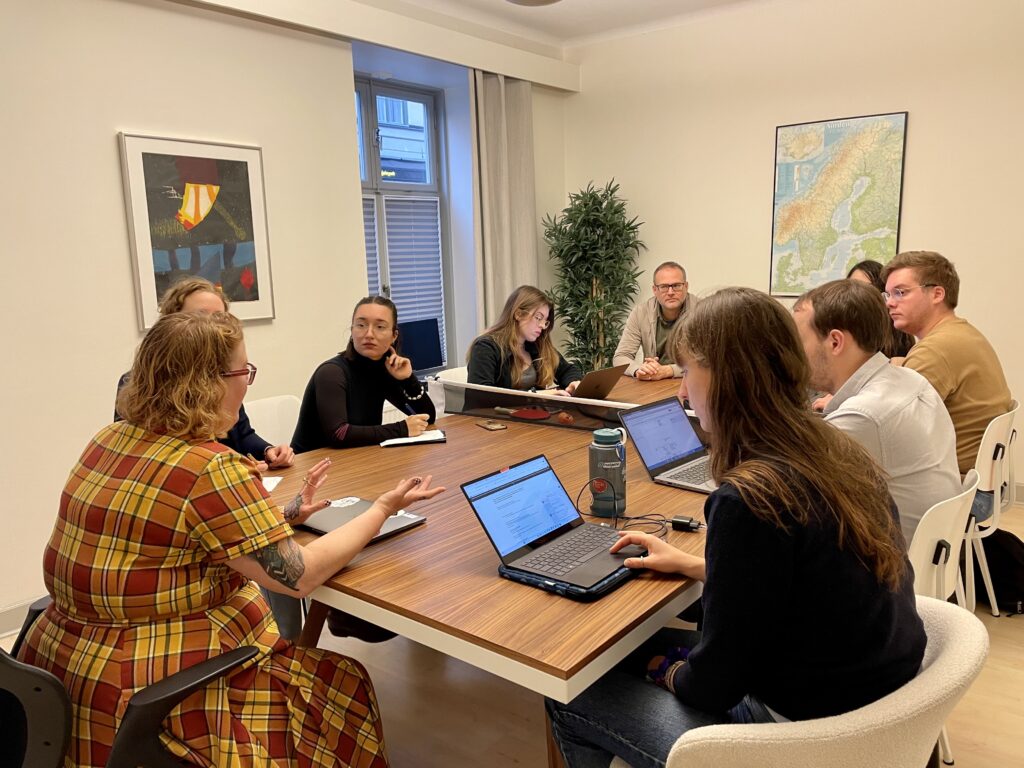
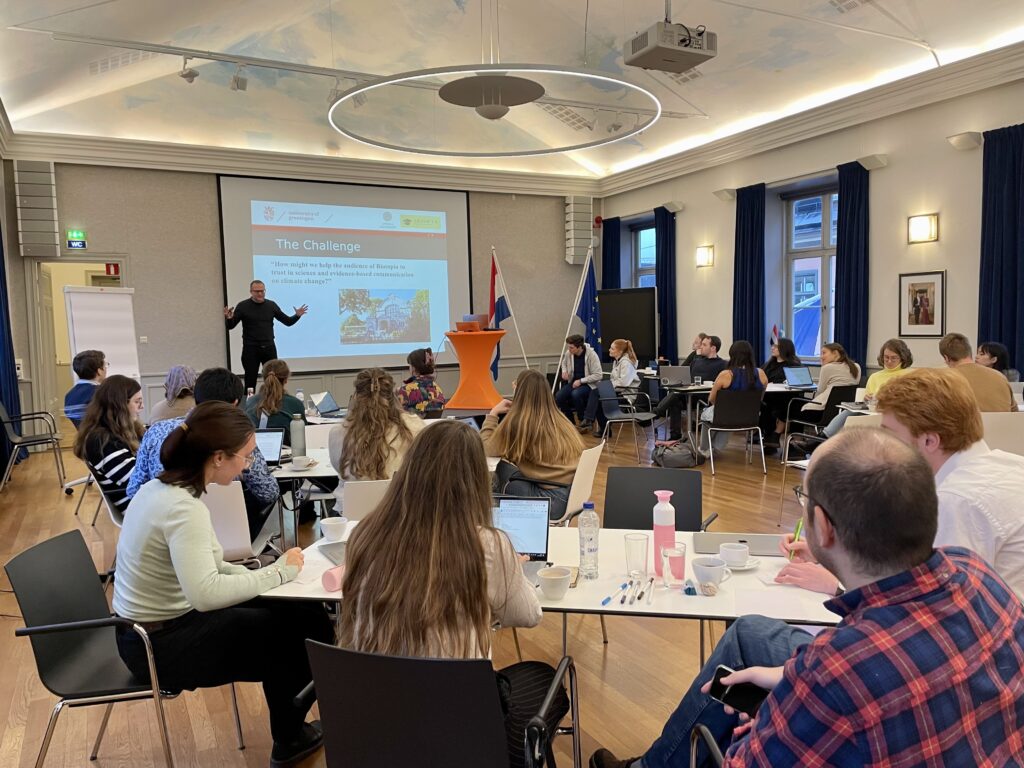
GroUp 3.0 brought students together for a hackathon-style challenge that addressed real-world problems. This year’s challenge, organised by Biotopia – the Biological Museum in Uppsala, focused on evidence-based science communication on climate change. The goal was to support Uppsala in its commitment to become climate neutral by 2030 and climate positive by 2050. This collaborative experience allowed students to engage with companies, organisations and customers, giving them a deeper understanding and a drive to make a positive impact on society.
The GroUp initiative, now in its third year, is an example of the transformative power of challenge-based education (CBE). As Bas Baalmans, Managing Director Groningen Digital Business Centre at the University of Groningen, points out in an article, students who participate in challenge-based learning become pioneers, who
“fearlessly transform theoretical knowledge into practical solutions.”
The enthusiasm, curiosity and determination shown by students during these challenges demonstrates the potential of hands-on learning. The four-day event, held at the Netherlands Innovation Network Sweden at the Embassy of the Kingdom of the Netherlands in Stockholm, is a dynamic mix of group work, guest lectures and consultations with experts. Each year, the challenges focus on topics crucial to both society and students, ranging from student well-being to finding the right path after graduation and, most recently, trust in science.
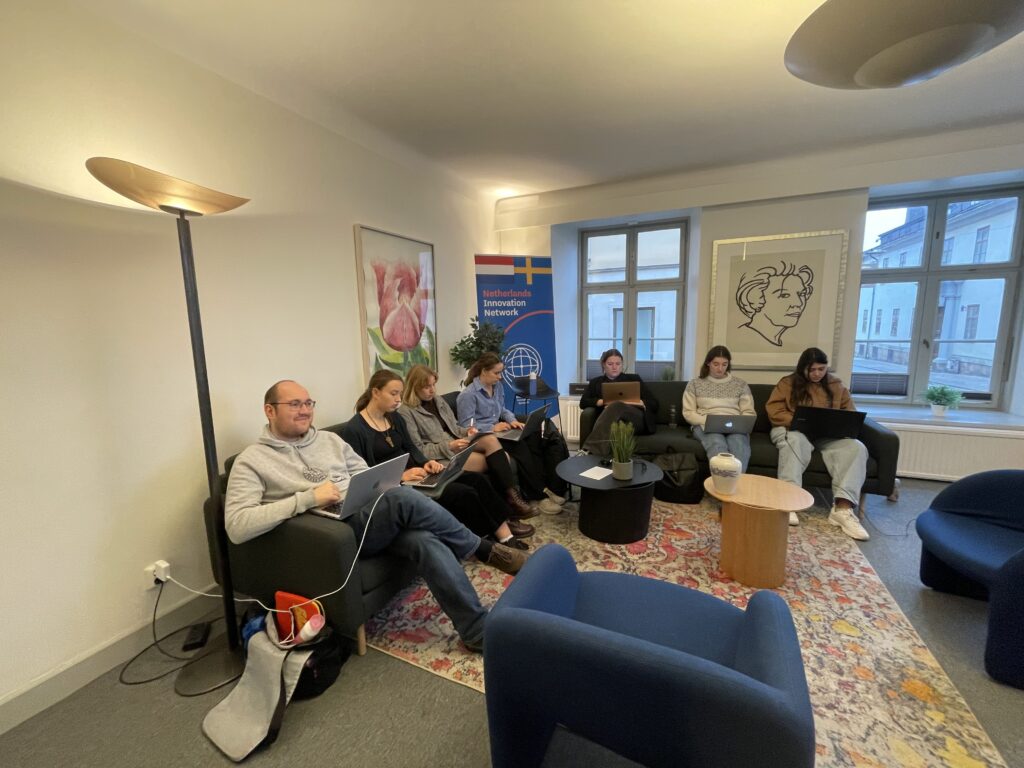
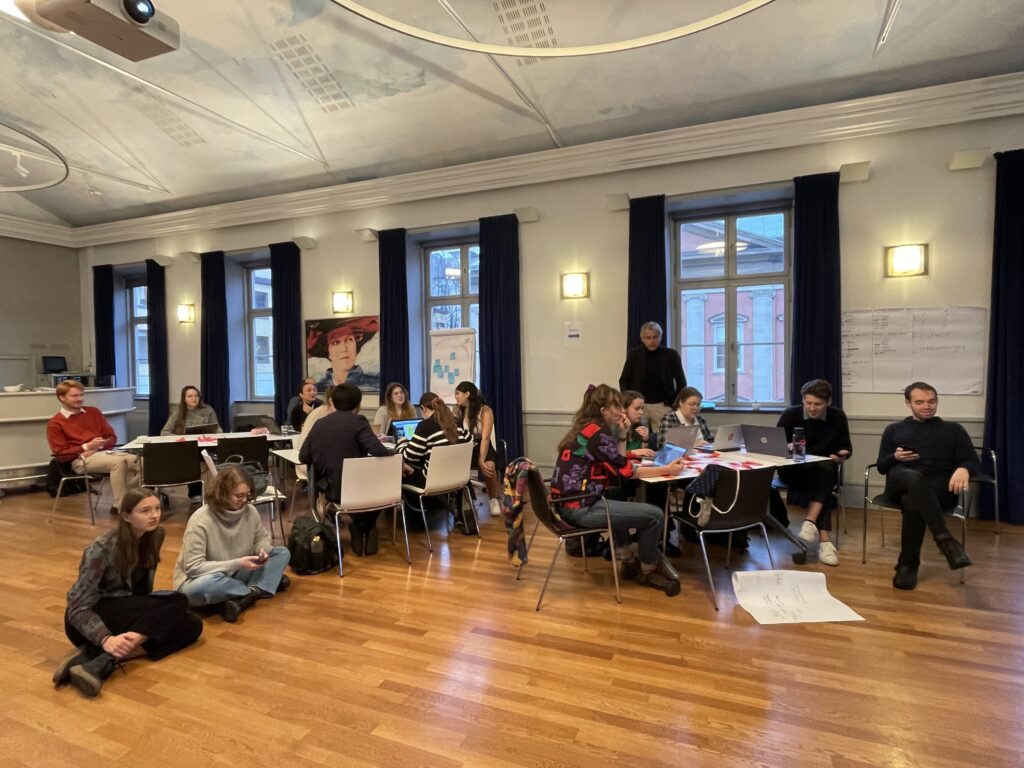
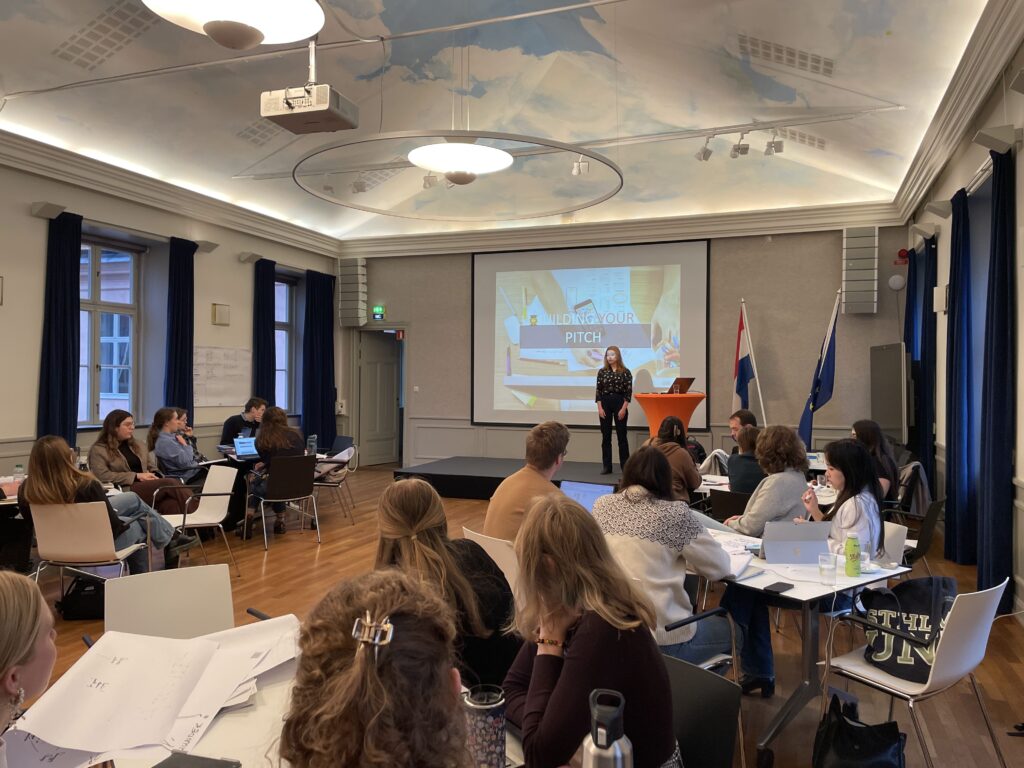
According to Wijnand Alderink, External Relations Coordinator at the University of Groningen, there is plenty of room for CBE in most university curricula, as academic knowledge and methodology are at the centre. CBE is the missing link that helps connect theory to practice, and it is still underestimated.
“Students learn more in a few days than in most of their courses.”
Putting this mission into practice is often a slow and challenging process; in this respect, GroUp is an interesting example, even if it is outside the formal curriculum. Since both universities are partners in the European University Alliance ENLIGHT, they also agree on the importance of collaborating with the surrounding community and contributing to activities with a positive societal impact.
But how did GroUp start?
It all started with a shared belief in the concept of Challenge-Based Learning, which led to the GroUp collaboration. The positive feedback from the first session paved the way for future editions. John Dekker, Senior Innovation Advisor at NIN Sweden, the initiator of the challenge, believes that such a project proactively promotes cooperation between the Netherlands and Sweden, unites universities and teaches students real innovation processes. In his words
“It establishes lasting relationships and creates a framework for further cooperation.“
NIN Sweden’s goal is to proactively stimulate cooperation between the Netherlands and Sweden in R&D, science and policy-making. Interdisciplinary teams make almost all innovations, whether in business or academia. Bringing people from different backgrounds together is key.
This year, the challenge holder was Biotopia. The museum in Uppsala has just launched a feasibility study on how it can become one of the city’s main hubs for climate change communication. The GroUp Challenge gave students the opportunity to engage in a creative process and co-creation activities, providing insights for the development of the museum. Involving students in working on scientific communication on climate change contributed to Biotopia’s goal of broadening its audience, especially the 20+ segments. Jonathan Schalk on behalf of the museum shared that
“the ideas generated by the students in Uppsala will be used for further discussions.”
Biotopia aims to use these ideas in the final report, fostering a sense of ownership among students and encouraging continuous co-creation, ensuring that the impact of the event extends beyond a one-off occasion.
What was the winning team’s pitch?
The winning team’s proposal, Biotopiart, for the Trust in Science challenge was to work with local experts and residents to highlight the local consequences of climate change and its impact on communities. The proposal involved creating artworks reflecting on these conversations and displaying them on banners around Uppsala to promote a sense of community. The team saw the inclusion of art and emotion, cost effectiveness and communication aspects as key factors that made their proposal compelling. The democratic and participatory nature of their proposed solution aimed to facilitate meaningful exchanges between people. The team is motivated to continue being involved in the implementation and hopes that their project will contribute to making communication on climate change more inclusive and relevant.
The challenge-based learning experience greatly influenced the team’s problem-solving approach. It allowed them to contextualise the problem, empathise with Biotopia‘s message and gain skills in relativisation, creative thinking and collaboration. Each team member highlighted unique aspects of their trip, from meeting students from different backgrounds to experiencing a professional international project in a new and exciting environment.
In conclusion, the GroUp Student Challenge 2023 is more than just an academic event – it is a paradigm shift. It challenges the traditional boundaries of learning and brings students into a world where theory meets practice and collaboration breeds innovation. The GroUp Challenge is not only about preparing students for the real world, but also about empowering them to shape it.
